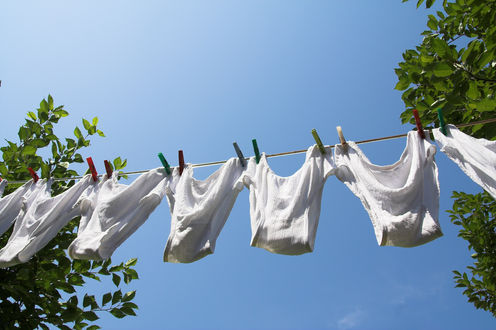
This article is part of our series examining hidden women’s conditions. You can read about bacterial vaginosis and other pieces in the series here.
Imagine. You are on a two-week walking tour in Thailand and the unthinkable happens. An episode of vaginal thrush hits like a tsunami.
Every step is agonising and it’s hard to resist the urge to scratch your genitals incessantly. To make it worse, your tour guide is a male with limited English and there is no pharmacy within a day’s walk.
This is how Debra (not her real name) described her extreme experience to me at a consultation.
Debra’s may sound like an extraordinary circumstance, yet women with vaginal thrush can suffer extraordinarily, no matter where they are at the time.
Although most women will have experienced one or more episodes of uncomplicated thrush that results in temporary discomfort, some suffer from recurrent episodes. The persistent physical symptoms of these can be shameful and often debilitating.
Uncomplicated thrush
Uncomplicated thrush is common. About 75% cent of women will have vaginal thrush in their lifetime.
Thrush is caused by a fungal infection (Candida albicans) that lives in the vagina, often without causing symptoms. Why some women develop symptoms is unclear. When symptoms do occur, they include itching, burning and a “cottage cheese-like” discharge.
Vaginal thrush mostly occurs during a woman’s reproductive years. It is uncommon before her first menstrual cycle and after menopause (when periods cease), so hormones are likely implicated.

Many have thrush at a particular time of the month, specifically before menstruation. It also often occurs following a course of antibiotics and is common in women with diabetes.
Medications are available without a prescription so many women treat themselves. Treatment consists of antifungal creams or vaginal tablets, which are put inside the vagina with a special applicator.
There is also the choice of oral tablets, which are more expensive and not recommended for pregnant women.
But it’s important that women see their doctor if these treatments don’t work or symptoms recur. This is because they may be suffering from an entirely different infection, which requires different treatment.
Although women can effectively be treated with medications available over the counter, there are about 5% for whom the symptoms recur or never go away.
Recurrent thrush
Recurrent thrush refers to four or more diagnosed episodes of vaginal thrush within 12 months. Because the four episodes have to be identified with a swab test, research into this area is difficult and costly.
Compared with research into uncomplicated thrush, the published studies for recurrent thrush are few and of poorer quality. No research so far has found a cure that works for all women.

This also means we don’t know exactly how long women may go on having experiences of recurrent thrush. Anecdotal evidence shows episodes can come and go for many years.
For people like Debra, who forgot to pack “emergency supplies” before her trip, recurrent thrush can cause relentless itching, constant pain and embarrassment.
Some women need to take time off work. Others find their self-esteem and confidence suffers when the condition flares up. Some women may find sexual intercourse extremely painful and others have attributed relationship difficulties or breakdown to the condition.
Many have reported frustration about seeing doctors who “fob them off”, advising them to take another course of anti-fungal treatment, or telling them that they just have to “put up with it”.
Recommended treatments
Some women benefit from long-term treatment, but relief remains elusive for others.
The only treatment of recurrent thrush supported by a large study is “suppression and maintenance” therapy. Symptoms are suppressed with a high dose of anti-fungal treatment followed by a maintenance dose (weekly or monthly) for up to six months to prevent remission.
Treatment is often inconsistent between practitioners. This perhaps reflects the lack of confidence in available guidelines, based on the above study.
In Australia, the Pharmaceutical Benefits Scheme (PBS) does not cover the recommended long-term treatment, making it unaffordable for many. If women use the vaginal creams or pessaries, the cost over a six-month period would be around A$600. Taking the oral treatment could set them back over A$900.
Some women are reluctant to take anti-fungal medications for long periods, as they can have some side-effects, including abdominal pain. Because of this and the expense, many turn to alternative therapies to combat thrush.
Alternative treatments
Although some women may find the folk remedy of yoghurt soothing, there is no strong evidence to support its use. Some recommend formulations such as aci-gel or vinegar to restore the normal pH of the vagina. But contrary to popular belief, the vaginal pH of women with thrush is usually normal.

Other natural treatments include tea tree oil and garlic. But using tea tree oil can lead to nasty allergic reactions, while garlic can burn.
Sometimes simple remedies such as ice packs applied to the area for up to ten minutes can bring relief. As alternative treatments, doctors usually recommend cotton underwear and avoiding feminine hygiene products, if possible.
Seeing a health professional who understands the complexities of this condition can be helpful, along with setting realistic expectations about management. Some hospitals have specialised vulval disorders clinics that women can attend with a doctor’s referral.
It is impossible to predict how long persistent thrush may last for individual women, but the good thing is most will respond to long-term therapy, and it will eventually ease.
Cathy Watson does not work for, consult, own shares in or receive funding from any company or organization that would benefit from this article, and has disclosed no relevant affiliations beyond the academic appointment above.
